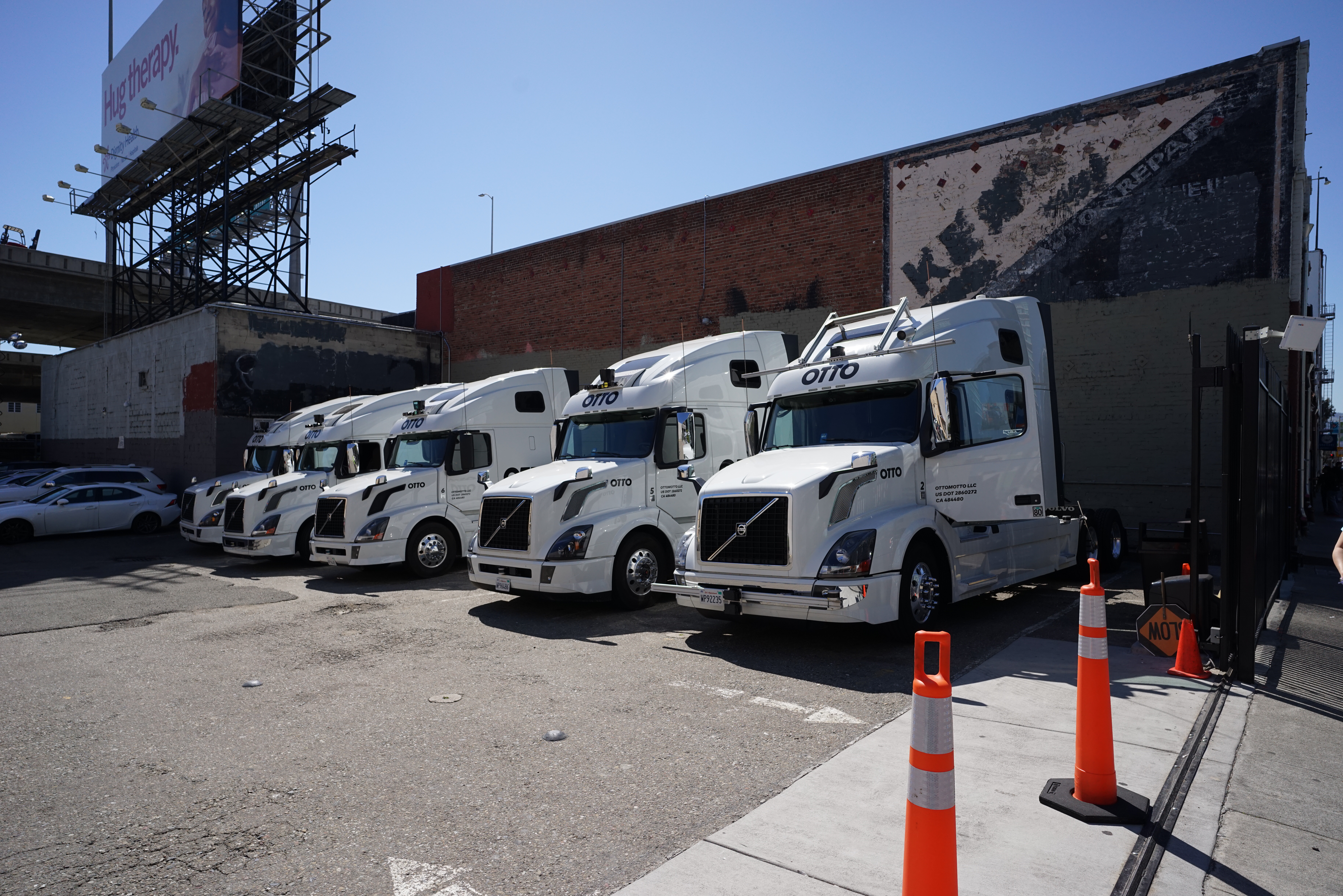Thune, Peters Divide Over Big Trucks in Driverless Vehicle Bill
“Highly-automated trucks are not ripe for inclusion”

Members of a key Senate committee are divided over whether to include large trucks in legislation that would guide driverless-vehicle regulation in a disagreement that pits safety against jobs in the trucking industry.
Sen. John Thune, R-S.D., chairman of the Commerce, Science and Transportation Committee, said at a hearing Wednesday that autonomous vehicles will improve safety and lower emissions. He said trucks weighing more than 10,000 pounds should be included in the legislation.
“Including trucks in the conversation about automated vehicles is important as we seek to improve safety,” he said. “It also puts our economy on a level playing field as other countries around the world deploy automated freight trucks.”
But committee member Gary Peters, D-Mich., said Congress should exclude commercial trucks and return to that later.
“Highly-automated trucks are not ripe for inclusion in this bill,” he said. “I recognize that in the long-term, self-driving trucks and buses are also intended to improve safety on our highways. That is certainly clear. But I question assertions that excluding self-driving trucks from this particular bill will result in less-safe roads.”
Thune and Peters are trying to draft a bill to set up a regulatory framework for self-driving vehicles. The question of whether to include trucks over 10,000 pounds is one of the final areas of contention, according to a discussion draft the senators circulated last week.
Advocates for autonomous vehicle technology say its benefits, which include improved safety and lower emissions, would be better realized if the measure addressed trucks. But Democrats and labor leaders worry about the impact on 3 million truckers and millions more working in related jobs in the industry.
“I think excluding the commercial industry would be a very big detriment to safety,” said Chris Spear, president of the American Trucking Associations. “We all share the road.”
Witnesses from outside the industry agreed.
Scott G. Hernandez, chief of the Colorado State Patrol, and Deborah Hersman, president and CEO of the National Safety Council and a former chairwoman of the National Transportation Safety Board, said including trucks in autonomous vehicle legislation would boost safety.
Democrats, including Peters, focused on government action to address job displacement for drivers and others in the industry. The shape of that action wasn’t specified, but Ken Hall, the general secretary-treasurer of the International Brotherhood of Teamsters, urged senators to keep the issue in mind.
“We haven’t gotten to the largest issue of them all, the potential impact on the livelihoods and wages of millions of your constituents,” Hall told the panel. “These issues should be considered carefully and deliberately at the outset of this discussion, not after the fact.”
Representatives of the trucking industry downplayed the job displacement possibility related to highly automated trucks. Spear and Troy Clarke, CEO of manufacturer Navistar, said trucking jobs would become more complex but would remain. They compared future drivers operating highly automated trucks to airline pilots.
“Personally, I believe drivers will become more like airline pilots — even more highly trained and skilled than they are today,” Clarke told the committee.
The House passed a bill this month that also sets up a driverless vehicle regulatory framework, but didn’t include trucks.
Both the House bill and the Thune-Peters discussion draft would raise the number of exemptions to Federal Motor Vehicle Safety Standards that the National Highway Traffic Safety Administration may grant to automakers every year. The House bill would also pre-empt state and local governments from enacting certain legislation, something the Thune-Peters draft doesn’t clarify.
The Senate hearing came a day after Transportation Secretary Elaine Chao unveiled an update to the NHTSA and Department of Transportation guidance on autonomous vehicles. The new guidance clarified that auto manufacturers and technology developers were not required to submit safety assessments to NHTSA before testing autonomous vehicles.
Sen. Richard Blumenthal, D-Conn., a Senate Commerce member, called the new guidance “anemic” and a “giveaway” to the auto industry.
Thune responded that that was an argument for robust legislation that included trucks.





